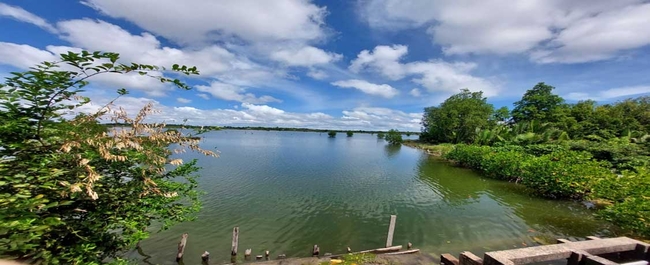Mangrove forests provide ecosystem services to local societies and to humankind worldwide. Thus, Mangrove conservation will result in numerous co-benefits. However, the implementation of aquaculture ponds for the production of shrimp, causes significant area losses of Mangroves in many regions worldwide.
Developing concepts for the co-existence of commercial aquaculture and mangrove forests is of pivotal importance, leading to societal, ecological and economic benefits to local communities.
MARINA is the follow-up of KATRINA and aims for the implementation of IMA concepts for existing shrimp and mud crab aquaculture in North Kalimantan. With several pilot ponds, the ecological and economic effect of innovative mangrove afforestation- and shrimp culture-designs in and around traditional ponds, will be tested.
By comparing the most common methods for shrimp production with various types of IMA approaches, ecological relevance and economic potential of each concept will be studied.
Mud crabs are considered a delicacy fetching high market prices. One of the main supply-chains starts in North Kalimantan, where it is exclusively collected wild, from Mangrove forests and shrimp ponds.
A local large-scale ex-situ seedstock production of mud crab shall be established within the frame of MARINA, to ensure a sustainable long-term supply of mud crabs, as well as livelihood opportunities for the local communities.
ZMT will provide scientific support and background knowledge for decision-making and the fusion of traditional aquaculture with Integrated Mangrove Aquaculture (IMA).





